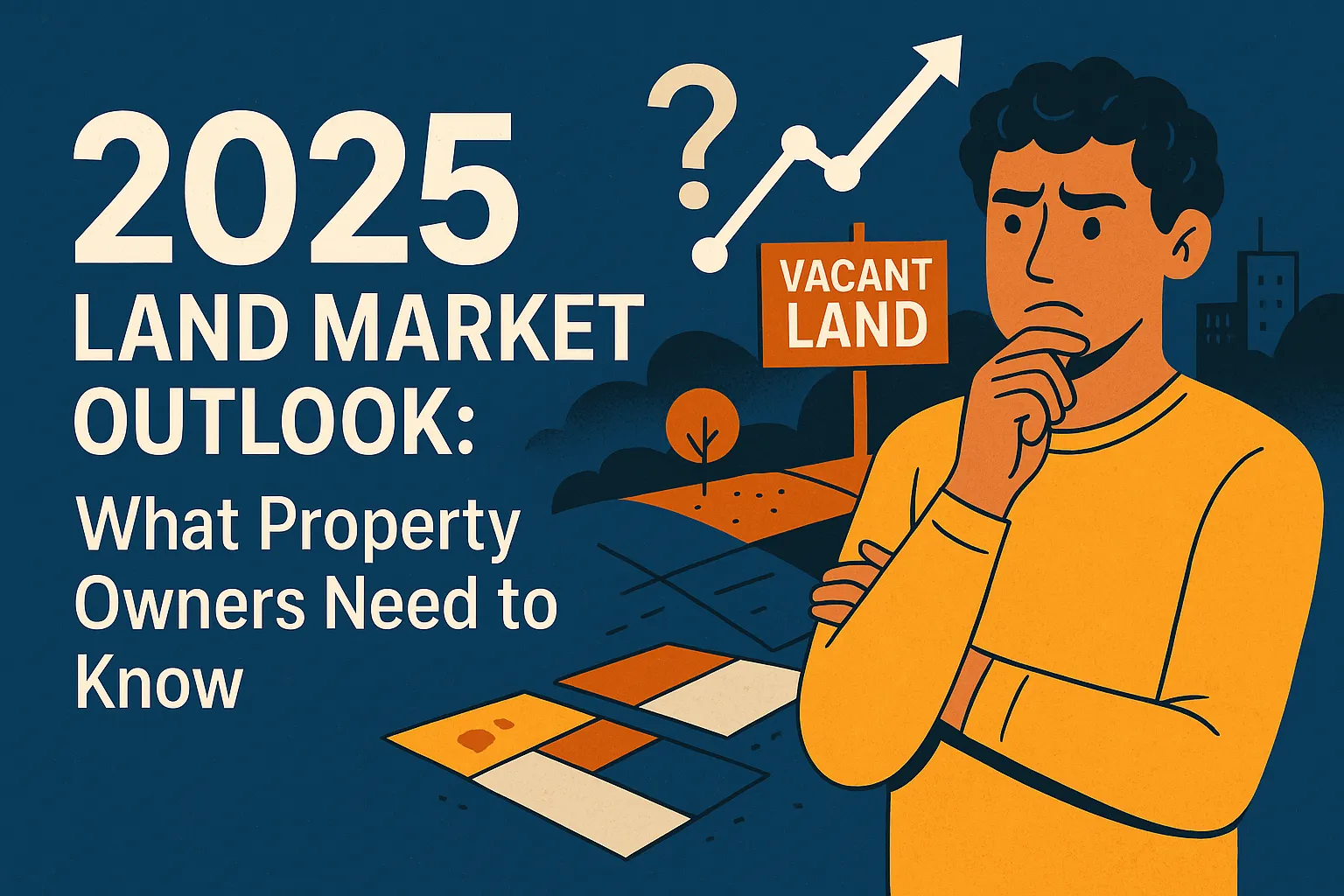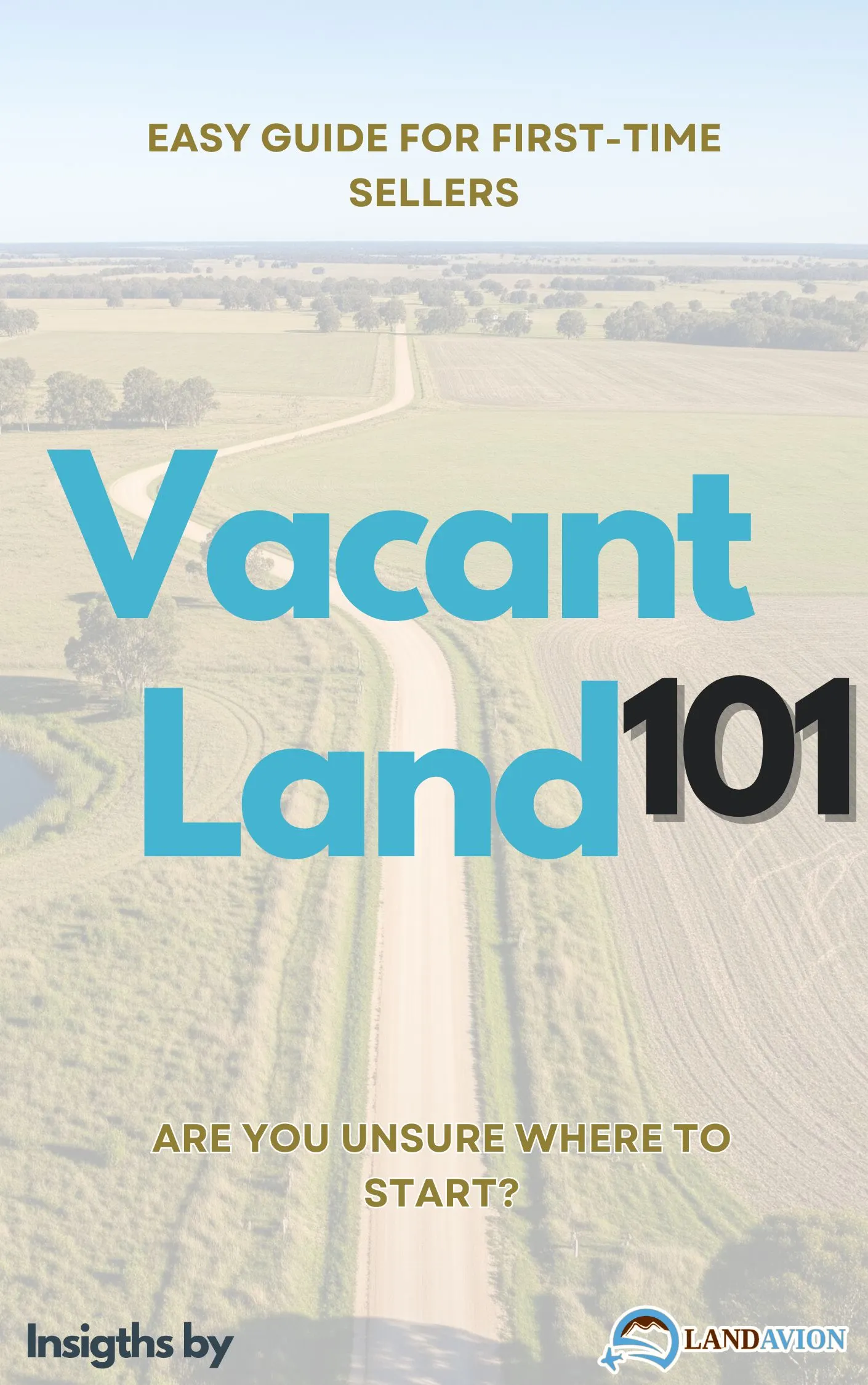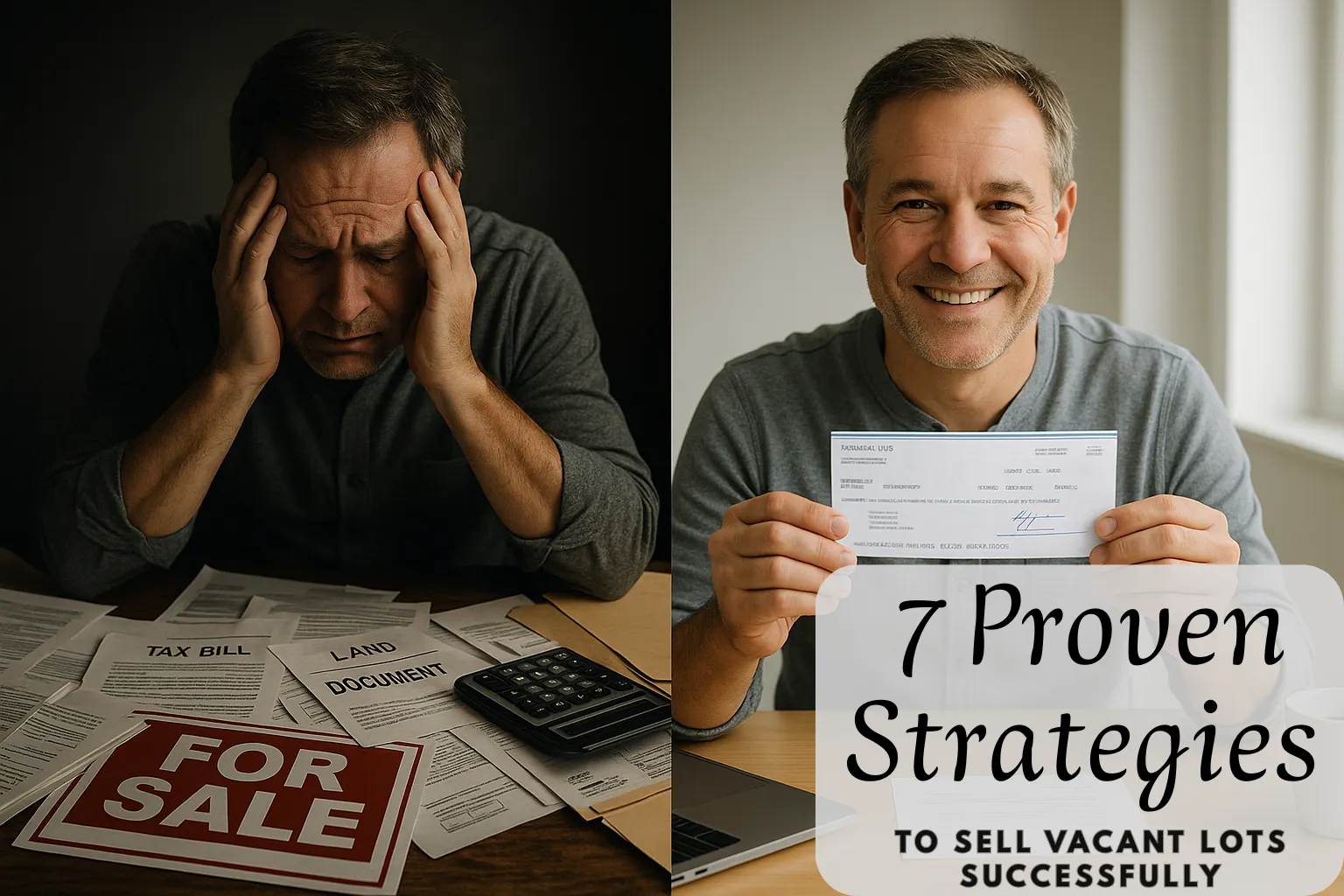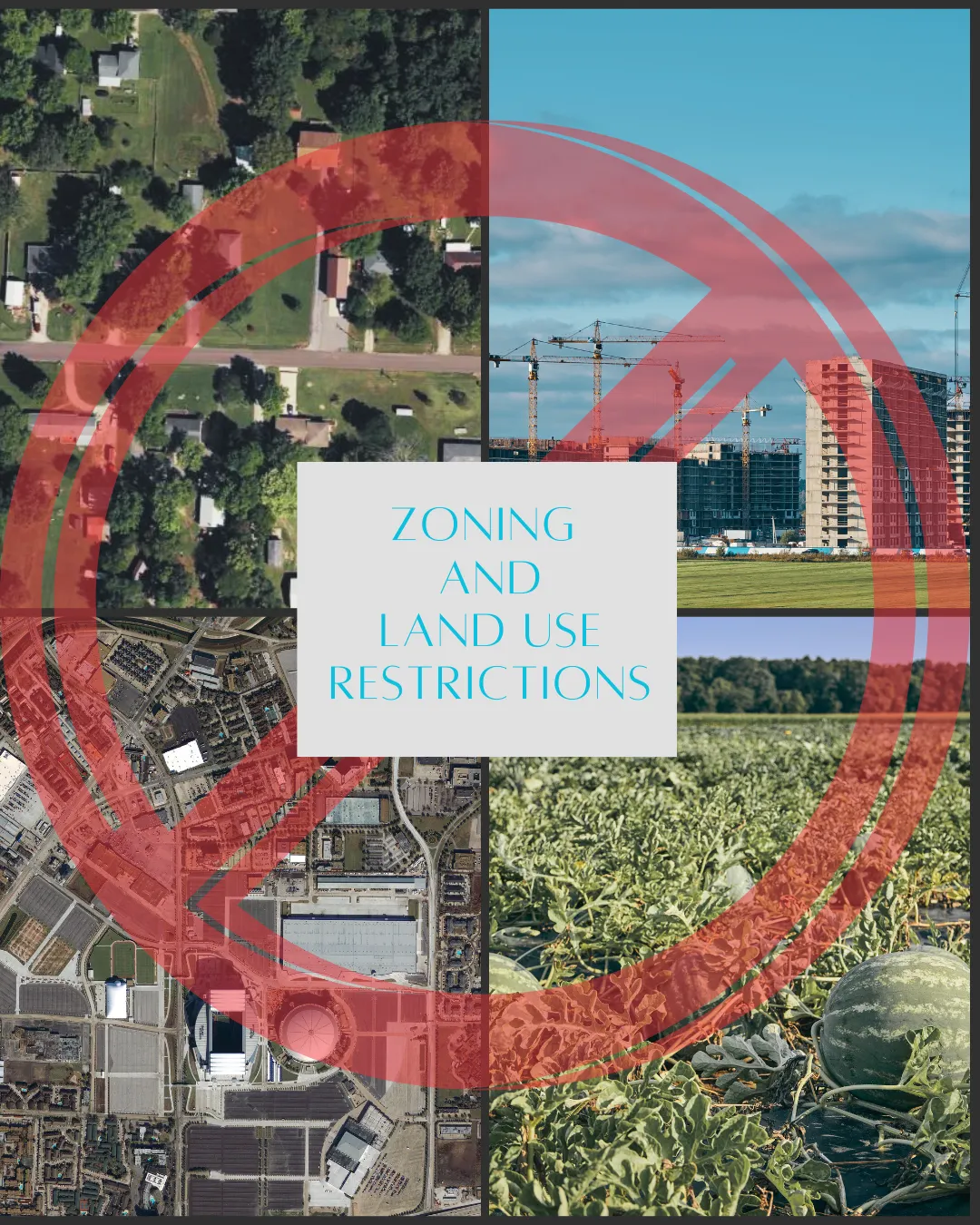When Retirement Dreams Change
What to Do with That Land You Bought for "Someday"
Introduction
Twenty years ago, you had it all figured out. That beautiful piece of land in the mountains, by the lake, or out in the countryside would be where you'd build your retirement dream home. You could picture it perfectly—morning coffee on the porch, grandkids running through the meadow, finally having time to tend that garden you always wanted.
But life has a funny way of rewriting our plans.
Maybe your health isn't what it used to be, and maintaining a rural property no longer sounds appealing. Perhaps your spouse has different retirement dreams now. Or maybe you've discovered that being close to grandchildren, medical facilities, and urban conveniences matters more than that peaceful country setting you once craved.
If you're sitting on vacant land that represents dreams that have changed, you're not alone. Studies show that nearly 40% of people who buy land for future retirement never actually build on it. Instead, they find themselves paying property taxes year after year on a dream that evolved into something different.
This article explores what happens when retirement plans change and how to handle that piece of "someday" that's become more burden than blessing.
The Reality of Changing Retirement Dreams
When "Someday" Becomes "Probably Never"
The signs often creep up slowly:
- You visit the property less and less each year
- The tax bills feel heavier each time they arrive
- Conversations about "when we build" have stopped happening
- You've started avoiding driving past the property
- The folder with house plans hasn't been opened in years
Sarah and Jim's Story: "We bought 10 acres in North Carolina in 2002. The plan was to build a log cabin and spend our golden years in the mountains. But when Jim had his heart surgery in 2018, we realized we needed to be near good hospitals. Now we're 71 and 73, and that land just reminds us of plans we'll never fulfill. Every tax bill feels like paying for a dream that died." - Sarah M., Florida
The Hidden Emotional Weight
Owning land tied to unfulfilled dreams carries unique emotional burdens:
Guilt: "We spent our savings on this land. How can we just give up?"
Regret: "If only we'd built sooner, before health issues arose."
Indecision: "What if we regret selling? What if we could still make it work?"
Financial Stress: "We're on a fixed income now, and these property taxes hurt."
These emotions often keep people paralyzed, neither moving forward with development nor releasing themselves from the burden. Meanwhile, the costs continue accumulating.
The True Cost of Holding Onto Yesterday's Dreams
Financial Drain on Fixed Incomes
When you're retired and on a fixed income, every expense matters. That vacant land you're holding onto might be costing you more than you realize:
Annual Carrying Costs:
- Property taxes: $500-$3,000+ per year
- Liability insurance: $200-$800 per year
- HOA or road maintenance fees: $100-$1,000 per year
- Periodic maintenance (brush clearing, fence repair): $500-$2,000 per year
Ten-Year Reality Check: A property costing $2,000 annually to maintain will drain $20,000 from your retirement funds over a decade—money that could fund travel, medical expenses, or time with grandchildren.
Opportunity Costs
Every dollar spent maintaining vacant land is a dollar not available for:
- Current retirement activities and travel
- Medical expenses and health care
- Helping children or grandchildren
- Enjoying life today rather than planning for "someday"
Why Traditional Selling Methods Frustrate Retirees
The Energy Requirement
Selling land the traditional way demands energy many retirees simply don't have:
- Multiple trips to the property for showings
- Dealing with real estate agents who don't understand land
- Managing marketing efforts and fielding calls
- Negotiating with buyers who sense desperation
- Handling complex paperwork and legal requirements
The Time Factor
When you're in your 70s, waiting 6-12 months (or longer) for a traditional land sale feels different than it did at 50. Every season that passes is precious time you could be enjoying retirement rather than managing property stress.
The Uncertainty
Traditional sales bring uncertainty that's particularly stressful for retirees:
- Will it actually sell?
- How long will I keep paying these taxes?
- What if the buyer backs out?
- What if I price it wrong?
A Different Path: Turning Burdens into Blessings
Recognizing When It's Time
Sometimes the kindest thing you can do for yourself is acknowledge when dreams have changed. Signs it might be time to let go:
- The property causes stress rather than joy
- You haven't visited in over a year
- The financial burden affects your current quality of life
- Your spouse or family has no interest in the land
- Health concerns make developing the land unrealistic
The Freedom of Letting Go
Robert's Liberation: "I held onto my dad's vacant land for 15 years after he passed, thinking I'd honor his memory by building there. But at 74, I realized honoring him meant enjoying my retirement, not struggling with property taxes. When I finally sold, it felt like a weight lifted. I used the money to take my grandkids on a cruise—Dad would have loved that." - Robert K., Arizona
Quick Solutions for Retirement Peace of Mind
When you're ready to convert that land from burden to blessing, companies like Land Avion specialize in helping retirees transition quickly and easily:
No Preparation Needed: Don't spend retirement energy on property improvements
Fast Process: Typically 2-3 weeks versus months of traditional selling
Certain Outcome: No wondering if or when it will sell
Simple Transaction: We handle all the complex paperwork
Fair Value: Cash offer based on current market conditions
Making Peace with Changed Plans
It's Not Giving Up—It's Moving Forward
Selling land you bought for retirement dreams isn't admitting defeat. It's:
- Choosing financial freedom over financial drain
- Prioritizing today's happiness over yesterday's plans
- Being practical about your current needs
- Creating resources for actual retirement activities
What Would You Do with the Freedom?
Imagine:
- No more property tax bills
- Extra money for travel or grandchildren
- One less thing to worry about
- Freedom from managing distant property
- Peace of mind for your spouse
Your Next Chapter Awaits
Life changes, and that's okay. The couple who bought that land 20 years ago had different dreams, different health, and different priorities. Honoring who you are today, not who you were then, is wisdom, not weakness.
If you're tired of paying for yesterday's dreams with today's retirement funds, it might be time for a conversation about your options. Whether you decide to develop, hold, or sell, the important thing is making a conscious choice rather than letting inertia decide for you.
Ready to explore turning that vacant land into retirement freedom?
Land Avion specializes in helping retirees transition quickly from land ownership burdens to financial freedom. No hassles, no improvements needed, just a simple path forward.
📞 Call: 979-269-7323 📧 Email: [email protected] 🌐 Visit: landavion.com
Because your retirement years should be spent enjoying life, not managing unwanted property from decades past.
Have a retirement property story? We'd love to hear how your plans evolved and what you decided to do with your land.





